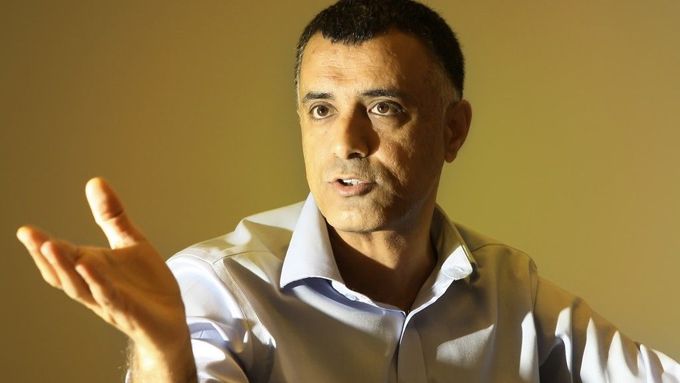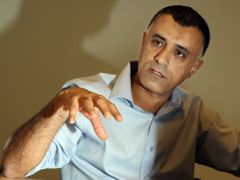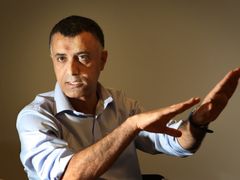Prague - ICQ, a brand that once pioneered the instant messaging sector, aims to regain the dominant position it once had but gradually lost in the growing competition.
After introducing ICQ 7, the latest version of the instant messenger that would serve as a hub that can unite several social networking sites at the same time, the company is going to start its expansion to new markets.
Read more: ICQ seeks two new markets. China in play
Executive director of ICQ Eliav Moshe talks to Aktuálně.cz in an exclusive interview about what he envisions for his company and social networks sector in the future.
Aktuálně.cz: You are heading the company that is seen as the pioneer of the social networking sector. Which social networks you yourself use?
Moshe: I have accounts on several networking sites. I need to know what the competition is doing, so I am registered on Facebook, MSN, and other sites. But now, thanks to ICQ 7 which is a sort of social networking hub that enables you to control all the services at the same time, I have changed my customs. I no longer have to visit various pages, I have everything in one place. I have been playing with the beta version for three months now, and I am excited.
A.cz: ICQ 7 is your attempt at becoming once again a top player in the social networks sector. You were once a pioneer indeed, but then you receded into the background. How are you going to persuade the users to get back to ICQ again?
Moshe: I believe there is no need to make them "get back". In the last five years we are witnessing globally a large increase in users. Even, for example, in the Czech Republic or Slovakia. Four years ago, we had one million users in the Czech Republic. Now, we have two. And we continue to grow.
Of course, according to me, ICQ 7 is the best ICQ version so far. It integrates social communication and everybody can engage in it more. The internet users use two types of communication: the private communication, above all instant messaging, and then the public one. And neither of them is squeezing out the other. They supplement each other. And ICQ 7 offers both things in one.
A.cz: ICQ is in a strong position in a few markets, above all Germany, the Czech Republic, Slovakia and Izrael. Do you have plans on getting into new markets with ICQ 7?
Moshe: I would add that we are surely the market leader also in Ukraine and Russia. However, we are presently working on getting us into new markets. By the end of this year, we will certainly have two more. There are several possibilities we are currently examining. I cannot tell you the names of the countries in question, but in terms of regions we focus on South America, Western Europe and the Far East.
A.cz: The Far East, that is above all China, which is seen by many as a very perspective market for the internet business. Is this market interesting for you, and how are you going to deal with the censorship of the internet by Chinese authorities?
Moshe: Of course, China is a very interesting market. And it surely constitutes a possibility for us. And precisely the approach of the authorities is one of the considerations we are dealing with, because our priority is to make our services beneficial to the users. But China is not the only market in the Far East we are interested in.
A.cz: Is the way of mergers and acquisitions an option?
Moshe: ICQ uses a different approach in this sense. We associate with strong local partners, such as Centrum Holdings (the owner of Aktuálně.cz - the editor's note) in the Czech Republic. We supply it the mark and also the user base. In return, the local partner provides us with the knowledge of the market. This is how we are penetrating new markets.
However, I believe that with ICQ 7 we can reach a substantial growth not only by getting into new markets, but also in the markets we already control. So I expect the future growth to be coming from two directions.
A.cz: If you are going to penetrate in this way into the two new markets you mentioned, are you already communicating with potential local partners?
Moshe: Yes, but as I said, I cannot tell details at the moment. The negotiations are at their very early phase.
A.cz: Now you launch ICQ 7, what will be the next step to gain new users?
Moshe: We are developing new applications, but I will not reveal them. In Israel we are testing a „Facebook chat" - an application that enables you to use ICQ to chat with your Facebook friends.
The social networking world is developing extremely fast, it sucks in new trends. It is a very dynamic sector. And of course, we are already developing ICQ 8, or whatever we decide to call the new version of our program. So we are celebrating the launch of ICQ 7, but we are already working on the new version.
"Nationalization" of ICQ
A.cz: Can you compare users in different countries?
Moshe: I believe that the behavior of our users in different countries is similar. And this regards also to the behavior of male and female ICQ users, with men tending to use it a little bit more. Perhaps only the Israeli users are younger and send more messages.
The current trend can be called the „nationalization" of ICQ. Earlier, users were sending more messages abroad. They were looking for acquaintances in other countries. Now, the communication is above all between people from the same countries.
A.cz: Today, social networks are experiencing a boom. But people start to realize that what they write online is in fact public and can cause them inconveniences. Can this lead to a stagnation of the sector?
Moshe: As I said, there is public and private communication in social networks. We primarily focus on the private one, and we have prepared a very advanced application that enables it. Maintaining the privacy of our users is of a great priority for us. And we are definitely going to continue maintaining it.
No interference from law-enforcing bodies
A.cz: However, strong privacy protection can be abused by, for example, organized crime or terrorists. Are the authorities in some states trying to make you reveal the communication between certain users to them?
Moshe: This is not possible. The communication on ICQ is not stored, it cannot be traced. There are two billions messages sent every month in the Czech Republic only. The second issue is that, as far as I know, we have never been contacted by anybody who would want us to reveal some information. And even if it had occurred, the truth is that we do not have it.
A.cz: Finally, what do you think is the future of social networks? Aren't they self-absorbing? People are living more in their virtual worlds and are less interested in seeing each other. But if people won't bee meeting each other, they will have no experiences to share in social networks.
Moshe: I don't think it is possible that people close themselves in their virtual world. For example, our users have very few cyber-friends, or friends they communicate with only on the internet. Rather, they use ICQ to arrange meetings in the real world.
Simply, online communication is going to survive. And not only in the form of social networks such as ICQ, but I believe that even, for example, e-mail is currently irreplaceable.




